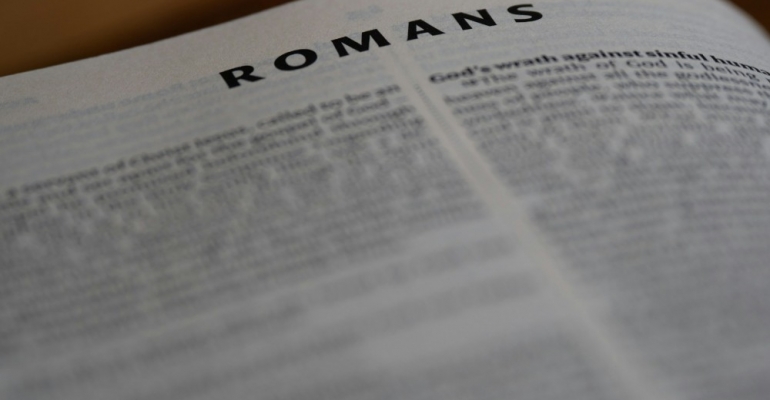
The Relevance of Romans 7
Romans 7 is famous for its egō. Who is the egō (the ‘I’) who speaks in verses 7-24? Is it Paul or someone else or just a rhetorical device? Is the one who died with the arrival of the law Paul or Adam or Israel? Is it a regenerate or unregenerate person who speaks from the depths of despair about their inability to do what they know to be good?
These are the questions we often ask when we come to Romans 7. And they’re good questions. Important questions, I think. Our answers to them will have a significant impact on our expectations for the Christian life. Getting them right is important.
But this isn’t the only way that Romans 7 is relevant to us. It isn’t hard to see that Paul’s primary focus in verses 7-24 isn’t actually on the figure who speaks but on two key questions: Is the law sin? (Rom. 7:7) And did the good law bring death? (Rom. 7:13)
We can easily overlook these questions thinking they’re not as relevant to a primarily non-Jewish audience. We aren’t as scandalised by Paul’s declaration that death with Christ includes death to the law (7:1-6), and so we don’t need the clarifications which follow.
But perhaps we do. Perhaps we’re not scandalised by the possible implications of what Paul says because we already have a negative view of the law. We give thanks that we no longer have to bring countless sacrifices in order to draw near to God. We’re grateful that our Sunday gatherings are somewhat less messy, less smelly, and more veggie-friendly than things would have been in the tabernacle and the temple. Our prayers, at least, can reveal that we see the law as a burden from which we’re glad to have been released. Perhaps we do believe the law is a bad thing.
But that’s exactly the kind of view that Paul is trying to protect against in Romans 7:7-24. The law wasn’t the problem. The law is holy and righteous and good (Rom. 7:12). In keeping with the Old Testament perspective, Paul sees the law as a gracious gift to Israel, a guide on how to experience fullness of life by following the creator’s design, and the gracious provision of ways to make up for the times when they failed to follow this design. The sacrificial system was not a burden, it was an incredible blessing. The problem was not the law God had given. The problem was the sin that dwelt within us.
I fear that when we give thanks that we are no longer under the burden of the law – with the effort and the mess required to follow it – we are not recognising the true nature of the freedom we’ve been given; we’re recognising our own laziness and our desire to be comfortable.
Freedom from the law is a wonderful thing. But it’s not wonderful because it makes life easier. And it’s not wonderful because it makes our gatherings cleaner and less smelly. It’s wonderful because sin dwelling in us misused the law and the law was powerless to deal with this problem, powerless to set us free from sin, and powerless to help us live God’s way. But when we recognise the true goodness of being freed from the law, we can join with Paul in his exclamation, ‘Thanks be to God through Jesus Christ our Lord!’ (Rom. 7:25).